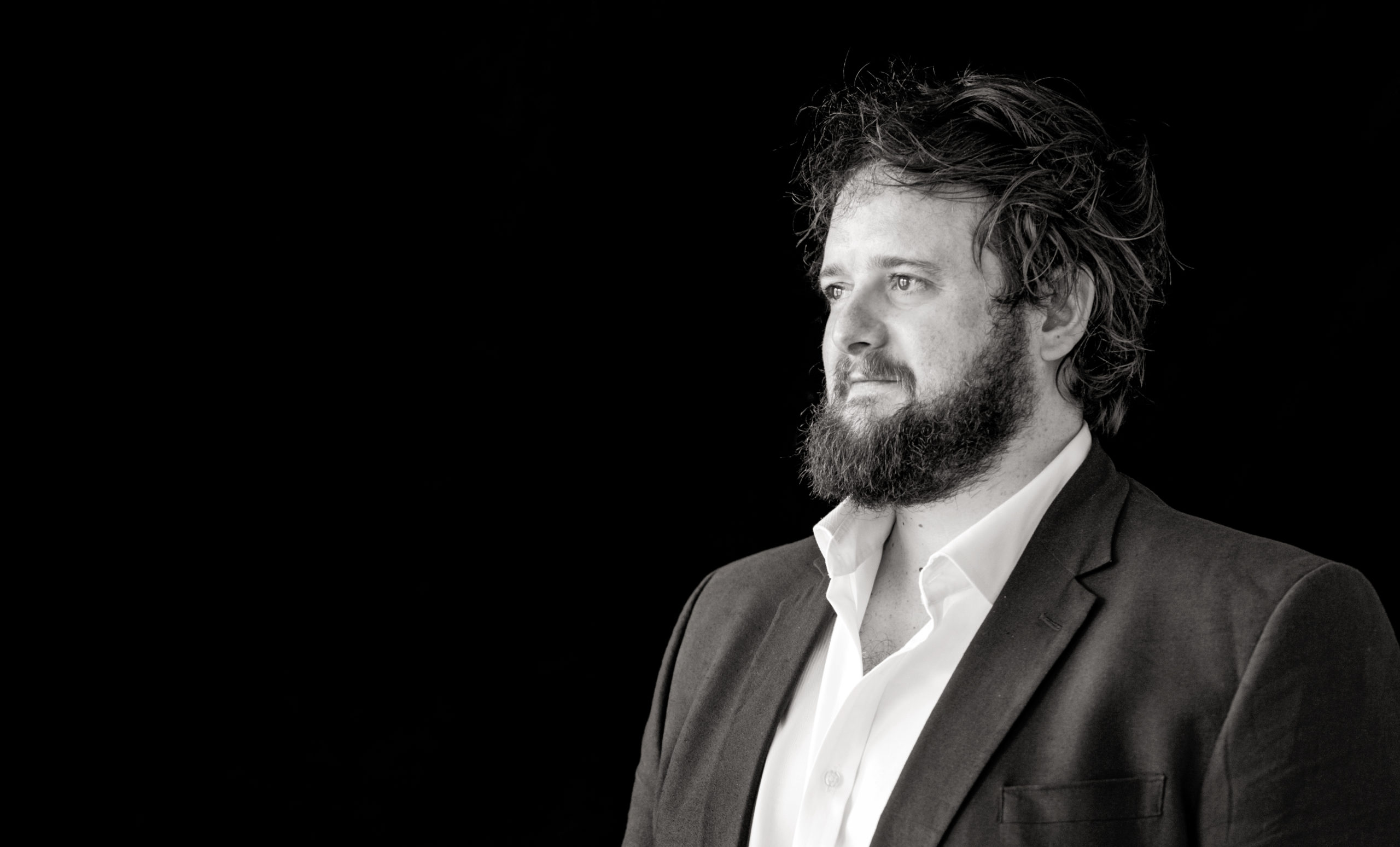Italian & English version
Reduce dal recente debutto al Teatro alla Scala con L’enfance du Christ di Berlioz, Allan Clayton, che si è imposto all’attenzione internazionale con la sua interpretazione del ruolo di protagonista della prima assoluta di Hamlet di Brett Dean (Glyndebourne, 2017) e il ciclo di liriche Refugee for tenor and chamber orchestra di Mark-Anthony Turnage’, è certamente uno dei tenori più interessanti della scena internazionale. GBOpera ha avuto il piacere e l’onore di intervistarlo.
Come è nata la sua passione per la musica e per il canto?
A casa mia si ascoltava sempre musica, ma era più musica pop e rock che classica. Quando avevo circa sette o otto anni mi sono unito a una nuova squadra di calcio e un paio dei ragazzi cantava in un coro maschile due volte a settimana – una volta li ho accompagnati e ho finito per restarci! Ho cantato per tutti gli anni della scuola, ma qualcosa è ‘scattato’ in me solo quando ero all’università e fu allora che compresi che forse potevo essere un solista.
Il repertorio contemporaneo ha un particolare posto nella sua attività artistica. Ama confrontarsi con autori attuali…
Assolutamente si. Molte delle domande che noi interpreti abbiamo relativamente al repertorio più classico troverebbero delle risposte se potessimo conversare coi compositori. 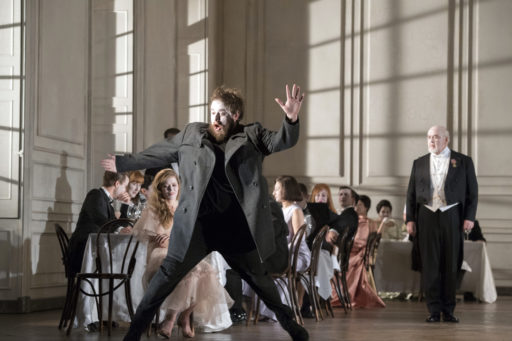 Sfortunatamente, la maggior parte di loro non ci sono più! Avere la possibilità di porre domande ai compositori contemporanei circa le loro scelte relative alla melodia o al lessico impiegato, per me non ha prezzo e mi consente di fornire una prova aderente a ciò che avevano in mente mentre componevano le loro opere…. Immaginiamoci cosa sarebbe farlo con Mozart!
Sfortunatamente, la maggior parte di loro non ci sono più! Avere la possibilità di porre domande ai compositori contemporanei circa le loro scelte relative alla melodia o al lessico impiegato, per me non ha prezzo e mi consente di fornire una prova aderente a ciò che avevano in mente mentre componevano le loro opere…. Immaginiamoci cosa sarebbe farlo con Mozart!
Lei ha interpretato molte prime assolute tra cui Hamlet di Brett Dean. Ci può parlare di questo personaggio e delle difficoltà a livello interpretativo e vocale che pone? È stato scritto per lei questo ruolo?
Amleto è senza dubbio il ruolo più difficile e soddisfacente, dal punto di vista creativo, che abbia cantato. Veramente sono stato fortunato che Brett Dean abbia scritto per me questo ruolo. Un compositore di grande empatia. Ci siamo incontrati diverse volte prima e durante la composizione. In questi nostri incontri lui ha sicuramente colto le caratteristiche della mia voce, cosa le si addiceva e cosa no! Il personaggio è al contempo terrificante e rassicurante, nel senso che c’è un po’ di Amleto in tutti noi. I suoi problemi (dolore, rabbia, solitudine, ecc.) sono legati a emozioni che tutti abbiamo provato, anche se, allo stesso tempo, si tratta di sentimenti difficili da mostrare/esplorare. Fortunatamente, il libretto e la musica erano più che mai convincenti che mi hanno reso il lavoro molto più facile. Non vedo davvero l’ora di riprendere il ruolo quest’anno (e in futuro) perché credo che diventerà sempre più facile dal punto di vista vocale e sempre più vicino a me.
C’è un’opera alla quale è particolarmente legato? Se sì, perché?
Non c’è un’opera in particolare, ma certamente ci sono personaggi a cui sono legato. Come nel caso di Amleto, ci sono elementi dei personaggi con i quali mi identifico o verso cui provo trasporto. 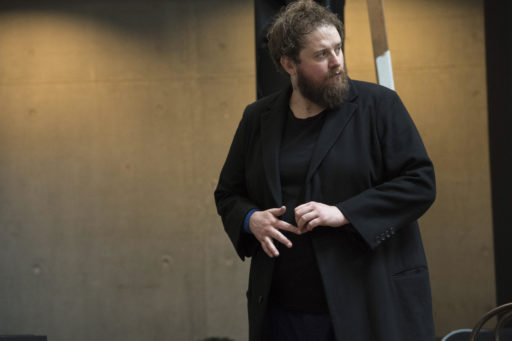 Anche I personaggi peggiori hanno delle motivazioni che li spingono a compiere le azioni che compiono. Se noi cantanti non riusciamo a trovare un modo per far sì che il pubblico simpatizzi con loro, questi si riducono semplicemente a delle caricature.
Anche I personaggi peggiori hanno delle motivazioni che li spingono a compiere le azioni che compiono. Se noi cantanti non riusciamo a trovare un modo per far sì che il pubblico simpatizzi con loro, questi si riducono semplicemente a delle caricature.
C’è un compositore, le cui opere ama particolarmente cantare?
Noi. Trovo piacere nella musica in sé, non necessariamente nel cantarla.
Osservando la sua discografia, sembra che lei ami in particolare due compositori che appartengono a due periodi diversi e che hanno stili diversi, ovvero Handel e Britten… che cosa ama della musica di questi due compositori?
Entrambi componevano per la scena in maniera brillante – raramente si trova nelle loro partiture una nota sprecata o superflua e la tensione drammatica viene sostenuta dalla loro scrittura. Naturalmente, è di grande aiuto che abbiano scritto molto in inglese – non abbiamo la stessa varietà di scelta dei cantanti italiani, tedeschi o francesi!
Fra i ruoli che sceglie di cantare, sembra che non ci siano ruoli italiani: si sente lontano da questo repertorio, dal punto di vista stilistico e vocale?
No, semplicemente non mi hanno chiesto di cantarlo! Penso che spesso i cantanti inglesi debbano fare uno sforzo in più per persuadere i direttori di casting di poter essere dei belcantisti convincenti. 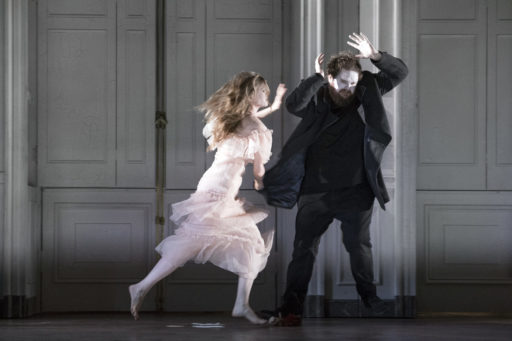 Con questo non voglio dire che il repertorio italiano mi venga naturale, ma solo che non ne ho ancora avuto l’opportunittà.
Con questo non voglio dire che il repertorio italiano mi venga naturale, ma solo che non ne ho ancora avuto l’opportunittà.
Passando alla sfera personale, che rapporto ha con la spiritualità?
In termini di credo, sono cresciuto da Protestante con tutto ciò che questo comporta dal punto di vista dell’indottrinamento, ma adesso sono assolutamente ateo. Riguardo la spiritualità..mi piacerebbe saperlo…
Che lavoro avrebbe fatto, se non fosse diventato un cantante lirico?
Nei miei sogni: un fantasista con la maglia numero 10 per il Liverpool Football Club. Nella realtà: sarei stato comunque nel campo musicale in qualche modo. È nel mio DNA.
Quali sono i suoi prossimi impegni?
Sono nel bel mezzo delle prove a Covent Garden della loro nuova produzione della Jenufa di Janácek, e dopo di essa il resto della stagione è piena di recital e concerti; debutterò con un recital negli USA e ho curato una serie di concerti per la Wigmore Hall e l’Aldeburgh Festival qui nel Regno Unito. Per la prossima stagione, lavorerò ancora col regista Barrie Kosky a Berlino e debutterò nel ruolo di Peter Grimes al Teatro Real Madrid. Sono vent’anni che aspettavo il momento giusto per potere potere affrontare questo ruolo!
How did you get passionate about music and singing?
There was always music playing in my house when I was growing up, but it was pop and rock rather than classical. When I was seven or eight years old I joined a new football team and a couple of my friends sang in a boys’ choir once a week – I just went along to keep them company and ended up staying! I sang all the way through school, but it wasn’t until I was at university, aged about twenty-one, that something ‘clicked’ and I realised that perhaps I could be a solo performer.
Contemporary repertoire has a special role in your artistic activity: do you like facing contemporary authors?
Absolutely, yes. So many questions we have as performers of older repertoire could be answered by having a conversation with the composers. Unfortunately, most of them are very, very dead! Being able to ask a contemporary composer questions about their choices of melody or word-setting is invaluable and helps me deliver a performance that matches what they had imagined when writing the material. Imagine if we could do that with Mozart.
You premiered many new works like Hamlet by Brett Dean, which you will perform again in June 2020 in Amsterdam. Could you tell us about this character and the challenges it implies, interpretation and vocal-wise? Was this role written especially for you?
It’s without doubt the hardest but most creatively satisfying role that I’ve sung. I am very lucky that Brett Dean wrote it for me and that he is such a sympathetic musician. 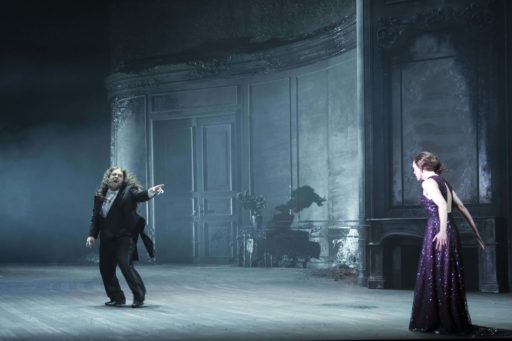 We met several times before and during the composition process, so I think he got to know how my voice worked and what sounded good, and what didn’t! The character is both terrifying and familiar in that Hamlet is all of us. His problems (grief, anger, loneliness, etc.) are emotions that we can all relate to, but at the same time it can be difficult to be exposed to/explore these feelings. Thankfully, the libretto and music were so convincingly written that my job was made much easier. I’m really looking forward to revisiting the piece this year (and in the future) because I think vocally it will become easier and even more a part of me.
We met several times before and during the composition process, so I think he got to know how my voice worked and what sounded good, and what didn’t! The character is both terrifying and familiar in that Hamlet is all of us. His problems (grief, anger, loneliness, etc.) are emotions that we can all relate to, but at the same time it can be difficult to be exposed to/explore these feelings. Thankfully, the libretto and music were so convincingly written that my job was made much easier. I’m really looking forward to revisiting the piece this year (and in the future) because I think vocally it will become easier and even more a part of me.
Is there an opera you particularly relate to? And if yes, why?
Not an opera, but certainly characters within them. As with Hamlet, there are elements of all characters with which I can sympathise or relate to. Even the worst kind of characters have reasons why they do the things that they do. If we, as performers, don’t find ways to make them relatable to the audience, then they just become caricatures.
Is there a composer whose works you find the most pleasure in singing?
Not really.  I find pleasure in the performance of music, but not necessarily in the singing.
I find pleasure in the performance of music, but not necessarily in the singing.
Looking at your discography, you seem to particularly love two composers who belong to two different eras and have two different styles, that is to say Handel and Britten… what do you love about the music of these two composers?
They both write brilliantly for the stage – there is rarely a wasted or unnecessary note in their music, and the drama is always propelled along by what they write. It helps of course also that they wrote a lot in English – we don’t have as many choices as Italian, German or French singers!
Among the roles you choose to sing, apparently there are no Italian roles: do you feel stylistically and vocally distant from this repertoire?
No, I just haven’t been asked to sing it! I think British singers often need to do more to convince casting directors that they can be convincing bel canto performers. That’s not to say that I am a natural in Italian repertoire at all, but the opportunities simply haven’t presented themselves.
What’s your relationship with spirituality?
In terms of faith, I was raised as a Protestant with all the indoctrination that that entails, but now believe absolutely none of it. In terms of spirituality, I wish I knew…
What would you do, hadn’t you become an opera singer?
In my dreams: creative No 10 for Liverpool Football Club.In reality: I would be involved with music somehow. It’s in my bones.
What’s in store for the future?
I’m in the middle of rehearsals at Covent Garden for their new production of Janácek’s Jenufa, and after that the rest of the season is busy with recital and concert work; I’m making my US recital debut in New York, and I have curated concert series for the Wigmore Hall and Aldeburgh Festival here in the UK. Next season I’ll be working again with director Barrie Kosky in Berlin and making my role debut as Peter Grimes for Teatro Real Madrid – the role I’ve been waiting twenty years to perform!
Photo: Sim Canetty-Clarke, Richard Hubert Smith, Monika Rittershaus
Versione italiana a cura di Paolo Tancredi.
